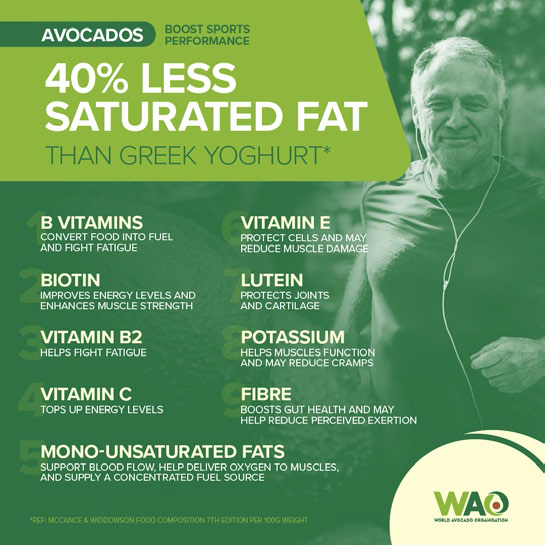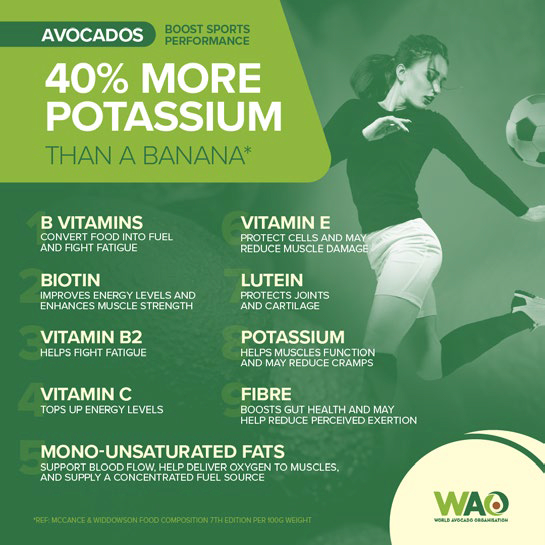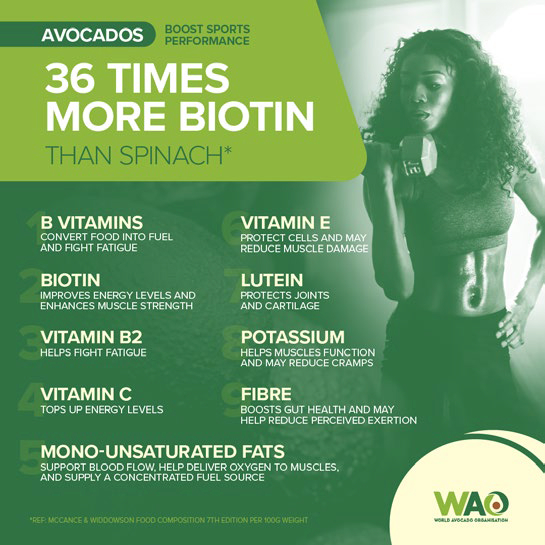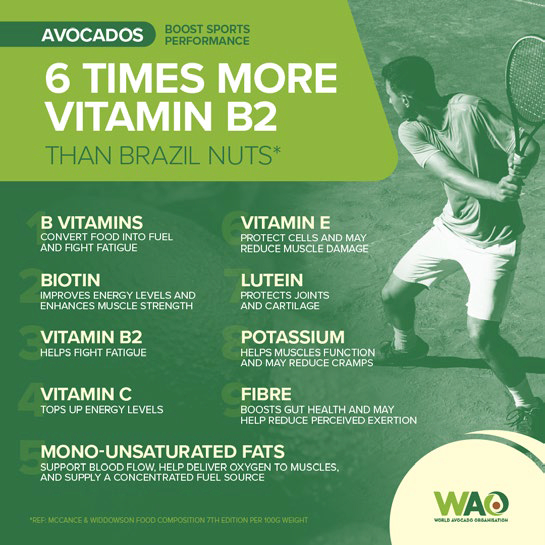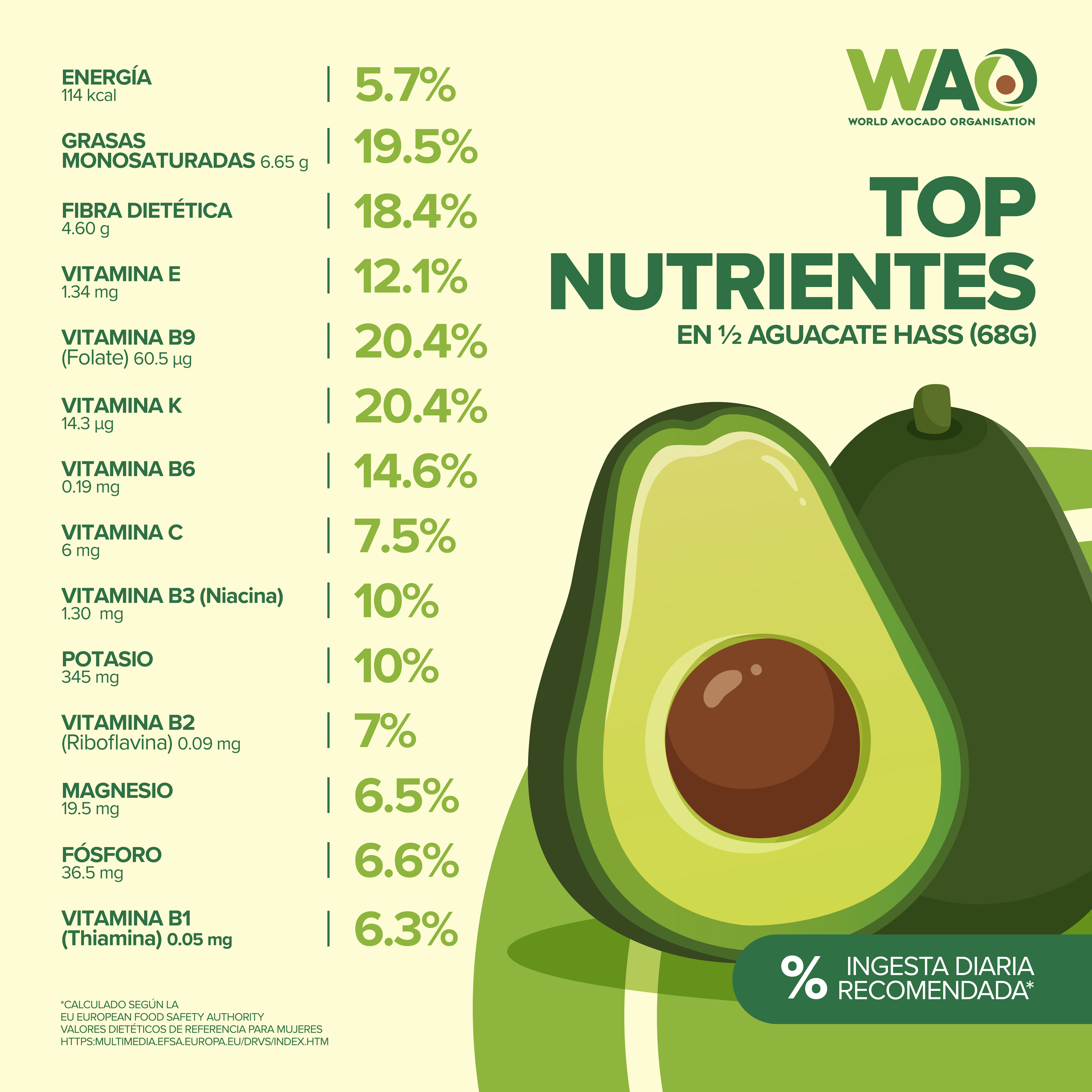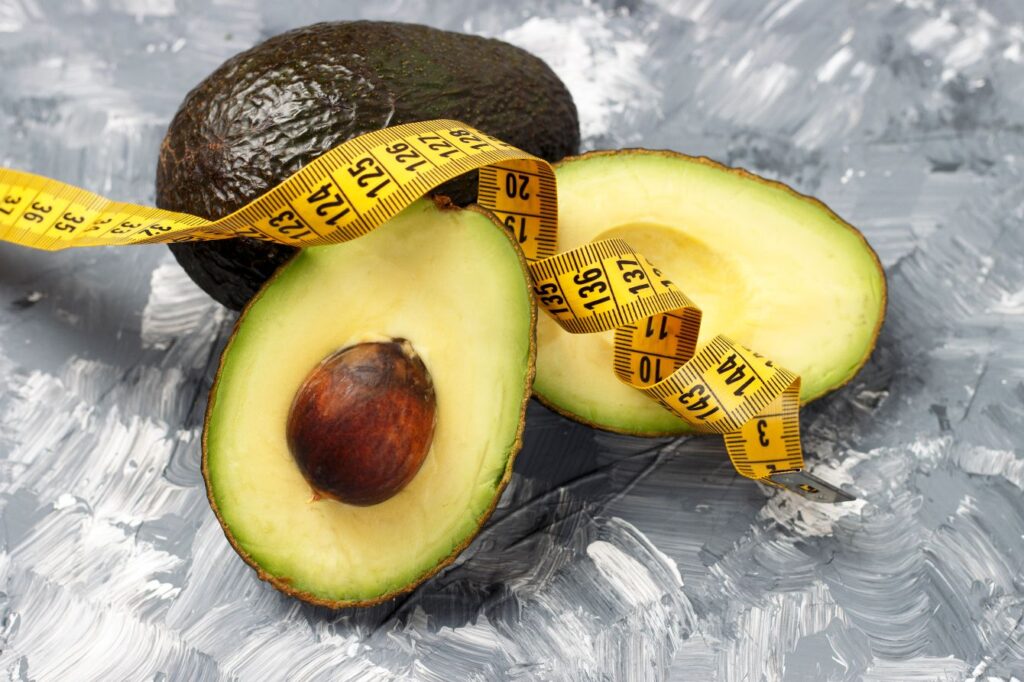Nutrition & Health
THE MOST NUTRIENT-DENSE
OF ALL FRUITS
AVOCADOS BOOST SPORTS PERFORMANCE
With such high nutritional values, avocados have a firm place in the sports diet. Across all sports, at all levels, the nutrition in avocados optimises performance through energy metabolism, muscle function and recovery.
Their healthy monounsaturated fats promote blood flow and deliver oxygen to muscles, which can help to reduce inflammation, during and after exercise. The B vitamins in avocados support food-to-energy conversion, while vitamin C is often linked to combating fatigue.
“The nutrient profile of avocados, including their useful contribution of B vitamins may support recovery and aid in stress management, making them a go-to choice for many athletes seeking sustained performance. With one of the highest protein contents of all fruits, avocados make a useful addition to a pre and post-workout meal or snack.”
Kerry Torrens, nutritionist and member of the British Association for Nutrition and Lifestyle Medicine
